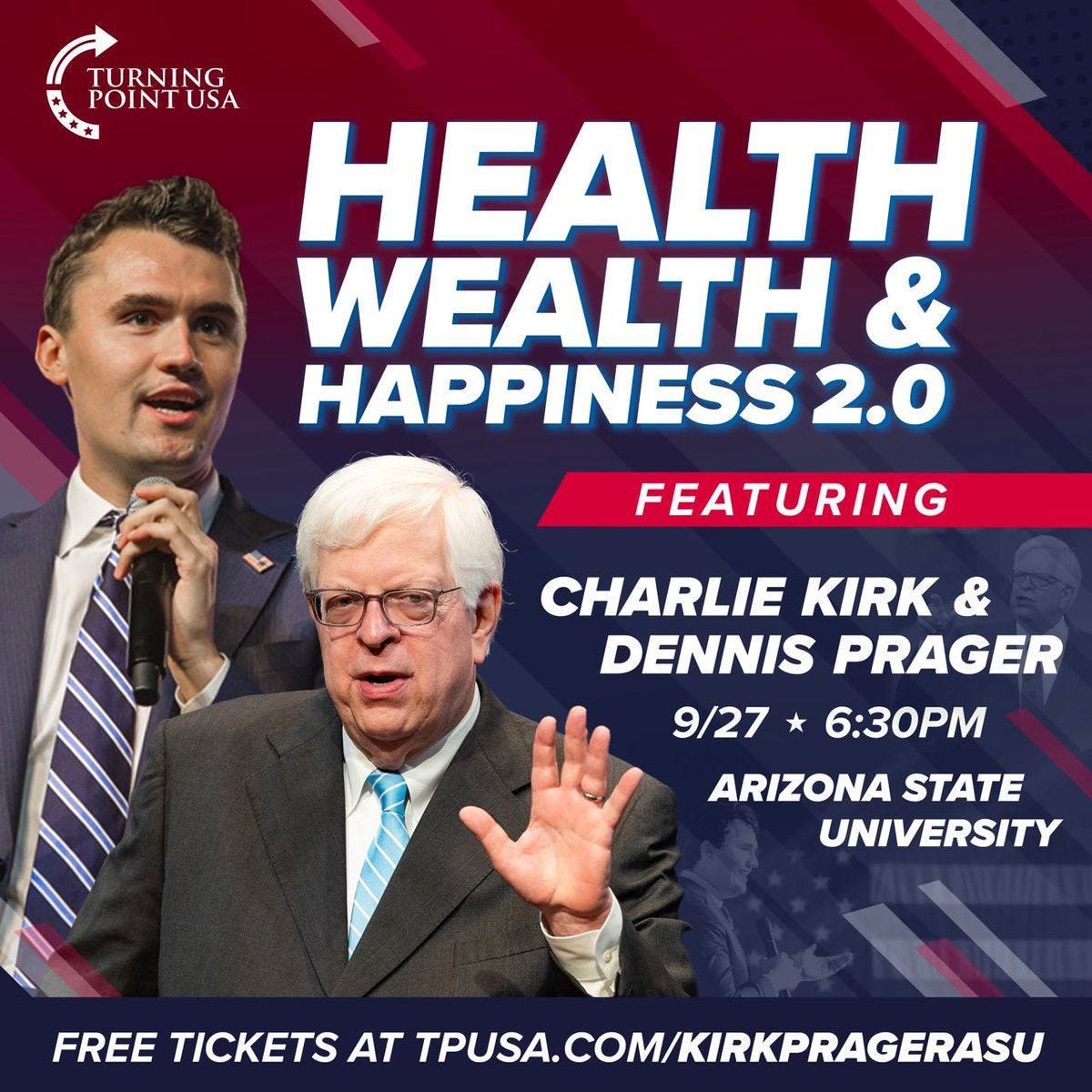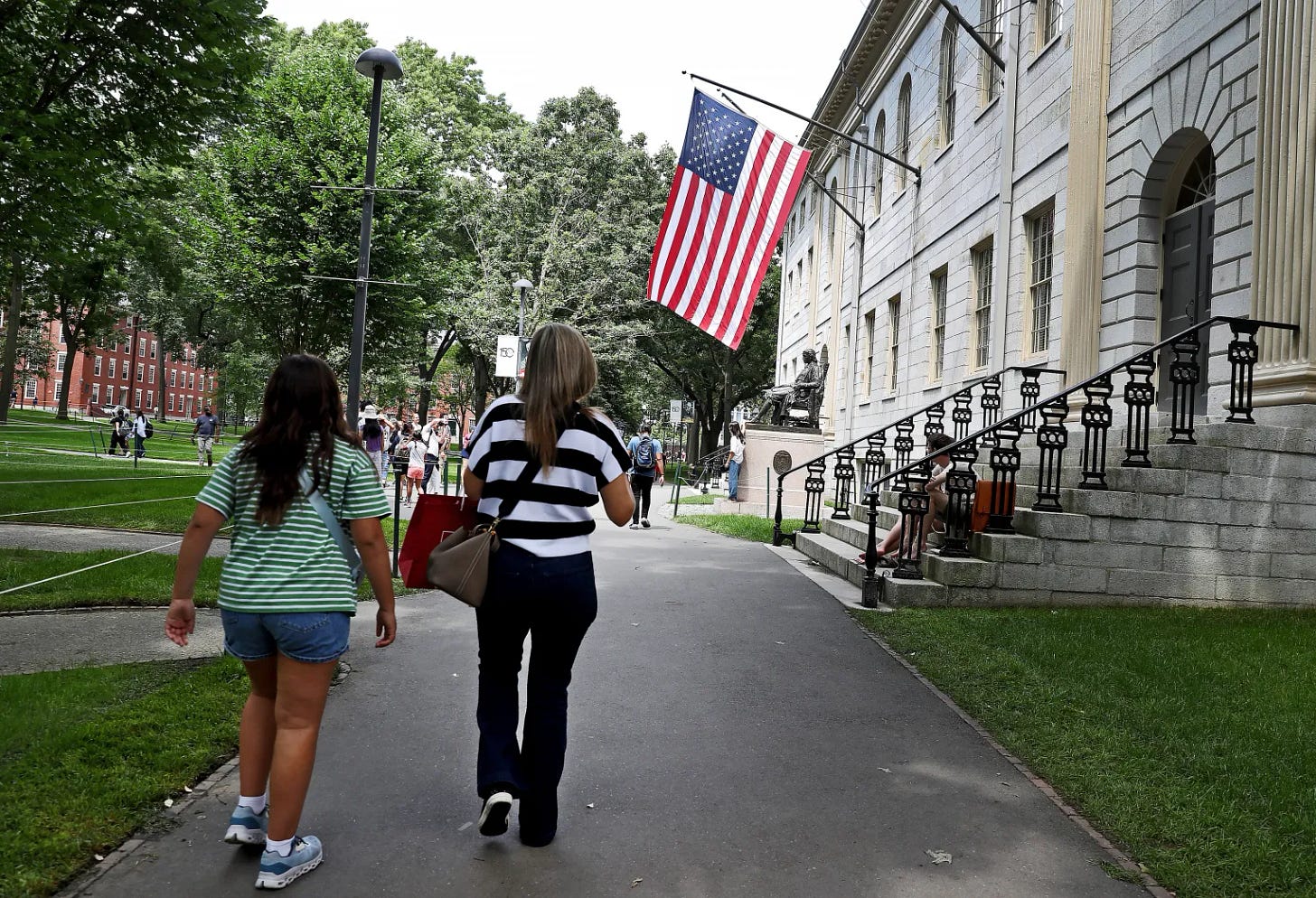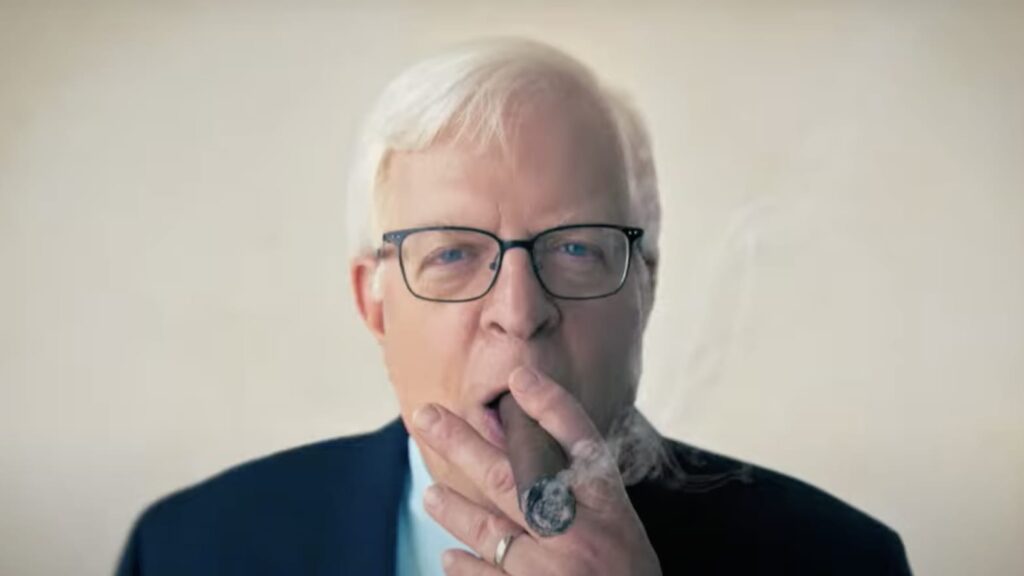Interesting developments on the free-speech front in Arizona and Massachusetts
The battle royal over free speech on campuses is climbing a few decibels on both sides of the country, it seems. The fracas at Arizona State University is likely to grow louder in coming weeks with a reprise visit by a couple controversial conservatives. As for the East Coast, Harvard has distinguished itself by placing last in a ranking by a prominent free-speech organization.
Let’s turn to ASU. It has become a showcase of sorts for conservatives who feel aggrieved and abused, as well as for academics who find themselves uncomfortably in the crosshairs of today’s cultural warfare.

Conservative radio host Dennis Prager and Turning Point USA founder Charlie Kirk, who stirred up a hornet’s nest in February when they visited ASU, plan to speak there again on Sept. 27. Their “Health, Wealth & Happiness 2.0” session will be sponsored by a student organization, Turning Point USA at Arizona State University, rather than by an individual college such as Barrett, the honors college that controversially hosted them last time through a now-defunct center.
Conveniently setting the stage for their visit, a university report about the brouhaha over their last visit is expected to be released shortly. That report was demanded by Arizona State Sen. Anthony Kern, who led a hearing into the matter in July. Kern said the legislature’s judiciary committee will take so-far-unspecified action dealing with ASU, depending on the thoroughness of the report.
Kern, who co-chaired the Joint Legislative Ad Hoc Committee on Freedom of Expression at Arizona’s Public Universities, has already telegraphed his feelings that he expects little from ASU that would placate him. “I do not trust the Board of Regents,” Kern said at the July hearing. “I do not trust ASU. I do not trust our universities to teach our kids what needs to be taught.”
For their part, it’s not clear what Prager and Kirk plan to talk about in the coming confab, although the session will also feature at least one state legislator who served on Kern’s ad hoc committee, Austin Smith, who also is a former director of Turning Point USA. That suggests that free speech on campus could take center stage at the session, as well as hoary claims of a leftward tilt among faculty.

Smith had asked the regents to investigate the termination of the director of the T.W. Lewis Center for Personal Development at Barrett. That ex-official, Ann Atkinson, had complained about her firing in an op-ed in The Wall Street Journal, suggesting that it was in reprisal for her organizing the first Prager-Kirk session. In fact, the funding for her position fell away when donor Thomas W. Lewis pulled his backing, citing what he called “the radical ideology that now apparently dominates the college.”
Shortly before the wintertime Prager-Kirk session, 39 faculty members at the college had written a letter to their dean complaining about the men’s visit, lambasting them as “purveyors of hate who have publicly attacked women, people of color, the LGBTQ community, as well as the institutions of our democracy, including our public institutions of higher education.”
Notably from a free-speech point of view, however, the Barrett faculty members didn’t call for the session to be cancelled. Instead, as some of them wrote in an op-ed in the Arizona Republic, some had slated a teach-in prior to the session called “Defending the Public University.” They maintained that they encouraged students to attend both events and claimed that many students did so. Nor were they party to the Lewis center’s shutdown, the authors said.
While that suggests an openness to free speech, Atkinson has argued that the faculty bullied students into staying away from both the Prager-Kirk talk and the ad hoc committee hearing in July. So far, though, no evidence proving such bullying has emerged (perhaps the university report will illuminate the matter). It may be that students just found the initial talk uninteresting and that, in July, few were on hand for the legislative hearing.
There are some crucial differences between the upcoming Prager-Kirk session and the February one. For one, a student organization is sponsoring the gathering, rather than a college. Thus, while it bears the imprimatur of that student group, it doesn’t need the blessings of a college where most of the faculty find the speakers reprehensible.
Certainly, the men have distinguished themselves as advocates of notions many find toxic. Prager has criticized homosexuality, for instance, writing “I, for one, do not believe that a man’s inability to make love to a woman can be labeled normal. While such a man may be a healthy and fine human being in every other area of life, and quite possibly more kind, industrious, and ethical than many heterosexuals, in this one area he cannot be called normal.” For his part, Kirk has praised Jan. 6, 2021, rioters at the U.S. Capitol as “patriots” whose travel to Washington, D.C., was funded by Turning Point USA, as the Daily Beast reported.
So far, it doesn’t appear as if ASU faculty members plan counterprogramming to rebut likely comments by the pair, which is an interesting approach. Would such programming elevate Prager and Kirk’s status and serve only to legitimize their ideas? One faculty member suggested to me that engaging them in debate would be akin to dignifying a member of the Flat Earth Society by sharing a stage with him or her, even if only to refute the person’s arguments.
Still, the views of Prager and Kirk raise a compelling question for advocates of free speech and those who see universities as places where conflicting ideas ought to be hashed out. When is someone’s speech so far beyond the pale that it doesn’t deserve an airing? And when a school, as opposed to a student group, brings such a person in front of students does that suggest an endorsement (indeed, might it be considered educational malpractice, if there were such a thing)? The challenge in this MAGA era is amplified because a substantial minority of the public share the ideas of such men.
A daughter-in-law of mine who teaches at Princeton frames this as a matter of progress over time. She contends that the line between acceptable ideas and those rightly consigned to history’s dustbin has consistently shifted. There was a time, for instance, when advocates of slavery (indeed slaveholders) could find a forum at universities. Similarly, pro-Nazi speakers and racists were tolerated on campuses. Has the line moved such that it’s left the likes of Prager and Kirk on the wrong side, irrespective of any followings they have in the general public?

Now, as to Harvard, the school has been named the worst for free speech among universities reviewed by the Foundation for Individual Rights and Expression. As the New York Post reported, Harvard scored poorly in large part because nine professors and researchers there faced calls to be punished or fired based on what they had said or written. Indeed, seven of them were disciplined.
Moreover, much of the trouble at Harvard has to do with self-censorship — not the type imposed by authority figures. The FIRE rankings rely in large part on surveys of students. And at the Boston school, the Boston Herald reported: “Self-censorship is pervasive across the board, according to the survey. More than a quarter of students (26%) said they censor themselves at least a few times a week in conversations with friends, and 25% said they’re more likely to self-censor now than they were when starting college.”
The atmosphere at the university has grown so troublesome to free-speech advocates there that more than 100 faculty members have joined a new Council on Academic Freedom on campus. Indeed, the debate about whether free discussion is stifled at Harvard has been joined – ironically but appropriately at Harvard.
Harvard Magazine sketched out the arguments last June. In part, it cited an op-ed that founders of the new council wrote in The Boston Globe: “The reason that a truth-seeking institution must sanctify free expression is straightforward,” they wrote. “…The only way that our species has managed to learn and progress is by a process of conjecture and refutation: some people venture ideas, others probe whether they are sound, and in the long run the better ideas prevail.”
This notion, implying that the marketplace of ideas will weed out the intellectual dinosaurs, is a longstanding one, of course. For campuses nationwide, the question today is about who should be permitted into the marketplace and whose ideas deserve only to be shunned.



